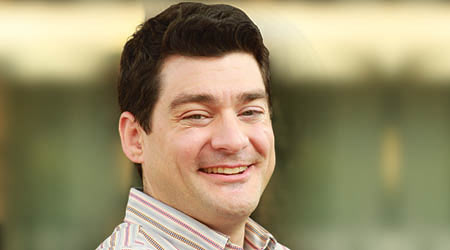
Many readers are old enough to remember a time before internet search engines were constantly at our fingertips. By now we all know that some portion of the information on the internet isn't completely accurate, or even true.
Back in the day when someone wanted to research a topic for a school paper or find a new author similar to one they liked, a librarian was often the first person to whom they turned. These days a book might have a ton of star ratings and reviews online, but wading through them can be a chore, and some of those five-star reviews are from bots or family members anyway. It can be much faster to simply ask a librarian to help distill thousands of authors into a few the reader will probably enjoy. I think this realization and the global growth of "Too Much Information" is contributing to a new wave of appreciation for librarians.
I'm optimistic that I know a little bit about green cleaning after 20 years of being immersed in cleaning products and procedures. Yet, when working with facility staff, it's still a challenge for me sometimes to find just the right "how to" guide, playbook, or "five-step plan" for green cleaning to match the current level of interest and knowledge at the facility. With so much information (some good, some not so good) from so many different sources, it's easy to overwhelm staff with too much material.
One effect of too much new green cleaning information is that a staff may revert to old habits or old products. If you're anything like me, a simple internet search or hyperlink click to get more details on a cleaning topic can turn into minutes (or hours) down the rabbit hole of ever-more related information, sussing out the original research report, looking into the source of funding for a study, or examining the organization behind a claimed third-party certification.
A colleague often uses the word "curation" when discussing what's needed to help digest the large amount of information in the marketplace regarding sustainable purchasing. I think one of the common "curation" definitions fits sustainable purchasing and green cleaning equally well. According to the Oxford University Press, curation is, "The selection, organization, and presentation of online content, merchandise, information, etc., typically using professional or expert knowledge."
If your green cleaning program is well-established, perhaps one of your knowledgeable custodians can act as curator when news articles, press releases, products, and equipment being marketed with green cleaning claims are brought to their attention. Other curators might include knowledgeable manufacturer representatives, a trusted distributor, departmental or district trainers, or purchasing professionals in your organization.
Allowing these individuals with "professional or expert knowledge" of green cleaning to help filter, organize and present relevant new information is of real value. Effective curation can help your green cleaning program continue to grow and improve — just make sure to give your curators an occasional five-star rating.
Mark Petruzzi is Green Seal's former SVP of Outreach and Strategic Relations. He's in his third decade of striving for more sustainable purchasing and operations by using his engineering powers for good. He can be reached at friendlygreenguy@gmail.com.

 The Down and Dirty on Cleaning in Virus Season
The Down and Dirty on Cleaning in Virus Season How Surfactant Use is Expanding in Commercial Cleaning
How Surfactant Use is Expanding in Commercial Cleaning Clean Buildings Conference
Clean Buildings Conference
